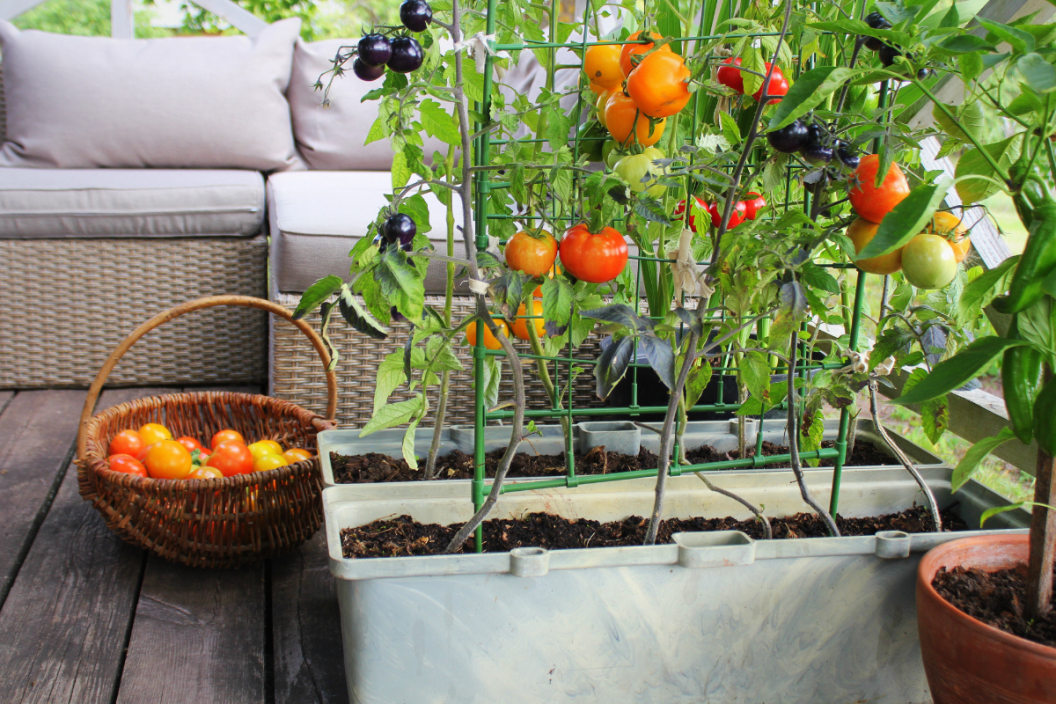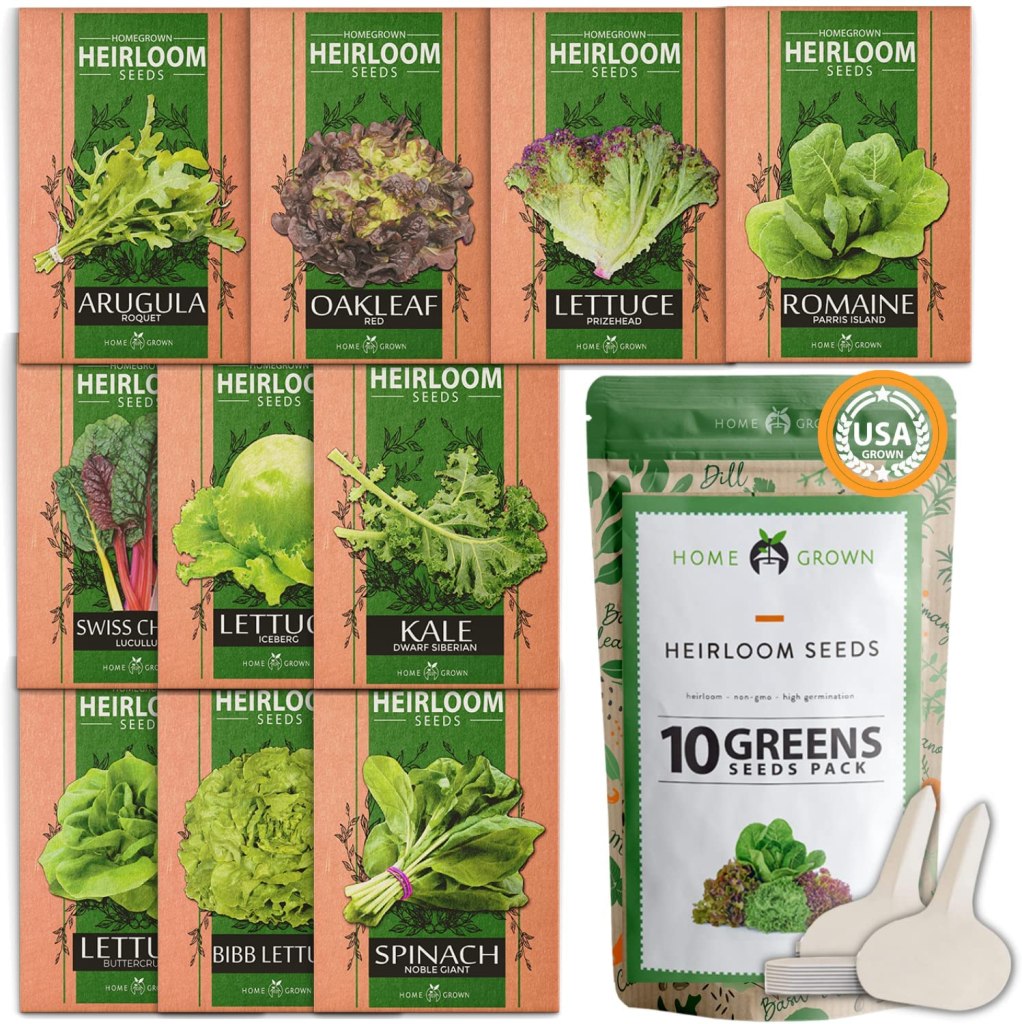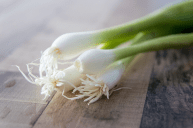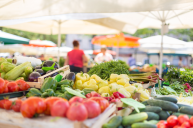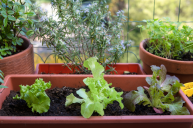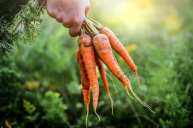We all want to save a few dollars here and there, especially as prices for food continue to rise. Growing your own food is a great way to save money and also take a break from the hustle and bustle of the world right now. Home gardens are easy to set up and you will love being able to forgo the grocery store for staple kitchen produce.
Videos by Wide Open Country
Growing Your Own Food Money Saving Tips
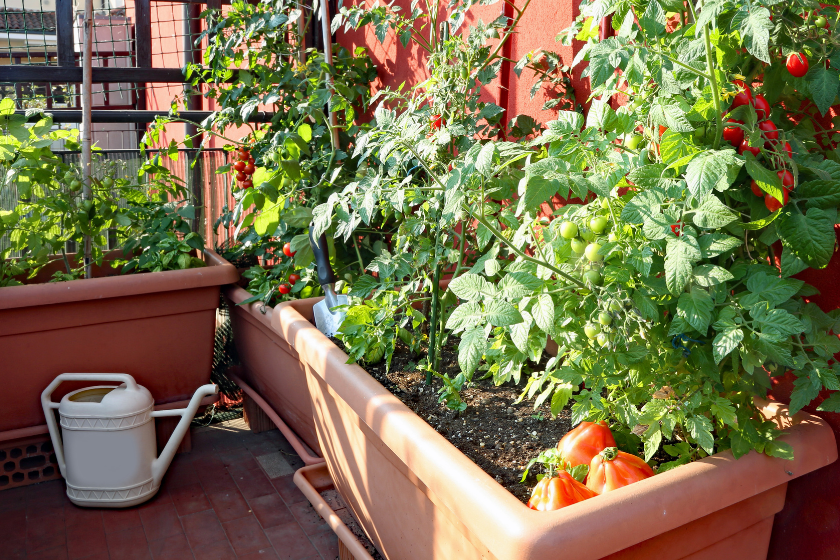
Plant your own herb garden.
Growing herbs at home has been a popular recommendation for beginner gardeners for a while — and with good reason. At the supermarket, fresh herbs often cost between $1.50 and $3.00. Additionally, the little containers of herbs from the store usually only last one, maybe two meals.
For example, at my local Harris Teeter—a Southern grocery store chain owned by The Kroger Co.—I can purchase fresh basil for $2.19. At Lowe's, I can buy a packet of basil seeds for $1.99. Although the prices are not that different, growing your own basil will yield upwards of 5 servings. Instead of $2.19 per serving, you're now only "paying" $0.40, saving $1.79 per serving. Check prices of some of your other favorite herbs too and see what your savings could be! An average plot provides "an estimated 300 pounds of fresh produce worth $600," according to a study by the National Gardening Association (NGA).
Stop buying salad greens and grow them instead!
Greens are a great addition to every meal — and even better when they save you money in the long run! Salad greens are a great thing to grow at home, because even though store-bought greens may be cheap, fresh greens are so tasty and last longer in the fridge than lettuce from the store. Additionally, you can create your own salad mixes!
Heirloom Lettuce and Leafy Greens Seeds
A 5 oz container of Organic Girl greens costs $4.99. Seed packets for greens range between $1.50 and $3.00. Not only is the seed packet cheaper than buying greens from the store, but also homegrown greens are often an "out-of-control" plant with an incredibly high yield.
With a high yield and low cost, the price of the seeds is near negligible. So, go ahead and start planting!
Save money by "reusing" bought produce.
An easy way to save money through gardening is "reusing" produce you have bought. Instead of tossing or composting produce scraps, consider replanting them. So many different vegetables can be regrown, including green onions, celery, potatoes, and more! Once you have your veggie scraps, it's time to plant them or prime them for planting. With most veggies, it's best to start regrowing them in water. Once the roots develop, transfer the veggies to soil. Typically, green onions cost $0.99 per bunch. When you regrow green onions, you're halving the "cost" of them with every harvested bunch! Like many other veggies, you can continue to harvest and regrow green onions. Another great way to put your old produce to good use is by harvesting seeds. Save seeds from your favorite fruits and plant them according to their season.
Low-cost planting tips.
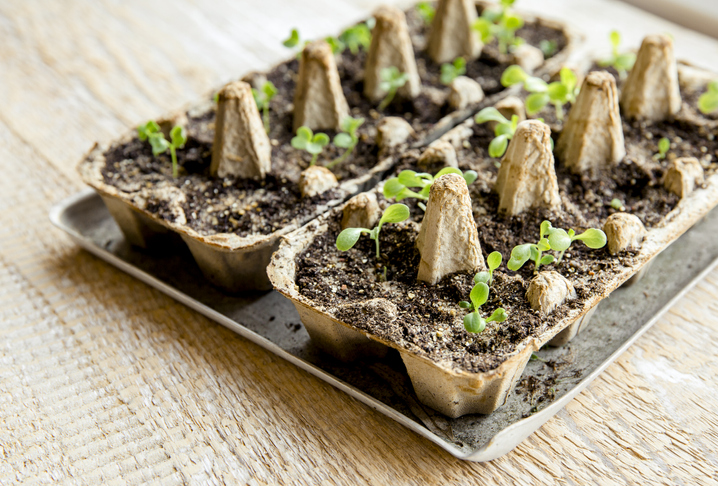
Getty Images
Growing food will save money, but there is an upfront investment into gardening supplies. For containers, try using some old household containers. Put holes into empty plastic storage containers (or those plastic containers things like yogurt and cream cheese come in) or start seeds in something like an egg carton. Once you're ready to plant, all you'll have to do is go purchase soil—but start making your own soil through composting, so you can guarantee your garden will continue to flourish.
Start growing and save money.
Once you start growing your own food, you'll never want to buy produce from the store again! Not only will you be cutting down on monthly grocery costs, but you can enjoy delicious, fresh, homegrown produce whenever you want.
READ: Study Suggests Gardening is Just As Good For Your Health as Working Out
Products featured on Wide Open Eats are independently selected by our editors. However, when you buy something through our links, we may earn a commission.
